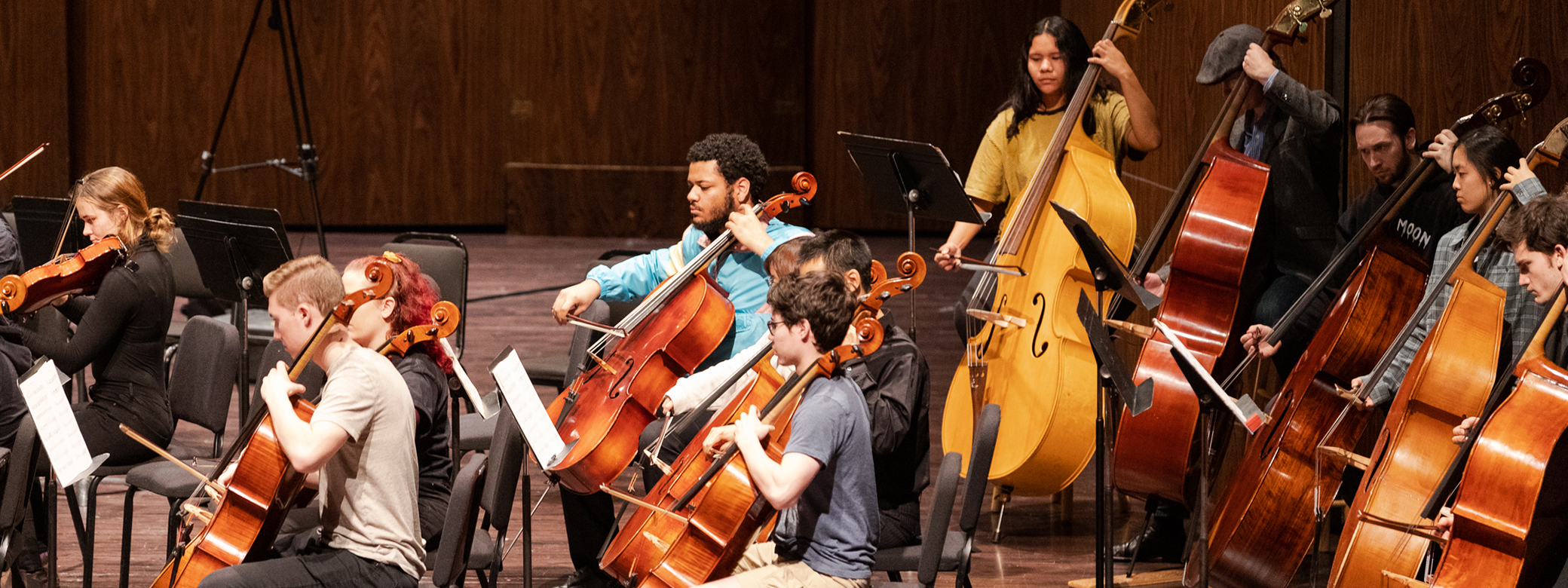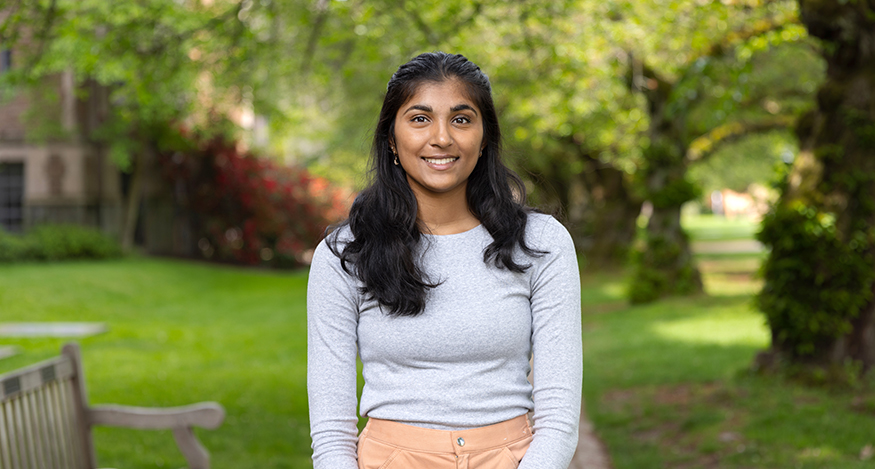
As a high school student in Redmond, Washington, Meghna Shankar was part of the Green Team, her school’s environmental club. Wanting to continue environmental work as a UW student, she was excited to learn that the UW’s Clean Energy Institute (CEI) provides research opportunities for undergraduates.
“I saw that the Clean Energy Institute was pretty well funded, with a lot of professors,” recalls Shankar, who graduates this month with a double degree in physics (College of Arts & Sciences) and computer science (Allen School of Computer Science & Engineering). “I wanted to do undergraduate research and I wanted to make an impact on climate change through my strengths in science. I saw the Clean Energy Institute as an opportunity to do that.”
By winter quarter of her first year, Shankar was working in the lab of CEI member Cody Schlenker, the Washington Research Foundation Innovation Assistant Professor of Chemistry and Clean Energy. She continued in his lab throughout her time at the University, while also pursuing physics research, participating in student organizations, and performing in the UW Symphony. She was recently selected as 2023 Dean's Medalist in the Natural Sciences by the College of Arts & Sciences in recognition of her many accomplishments.
A Steep Learning Curve
Shankar was accepted into the UW computer science major before arriving at the University, but she found herself drawn to pure science. Contemplating a second major in physics, she took a physics course during Early Fall Start, a program for new first-year students. That sealed the deal. “That course was so fun,” she says. “It got me even more excited about physics.”
Shankar also began working in the Schlenker lab. The research group studies a chemical process to increase the efficiency of solar cells by enabling lower energy light to be converted to higher energy light. “I chose that lab because the impact of the research looked interesting to me,” Shankar says. “As a freshman, I had no idea what most of the science meant.”
The lab was supportive in helping Shankar get up to speed. “Nobody was putting pressure on me to actually understand the research for a long time,” she says. “Eventually things started to make sense. I realized after a couple of months that it’s pretty normal to have a steep learning curve, especially as a first-year undergrad with no background in the subject.”
As Shankar progressed in her coursework and became more familiar with the research project, she drew parallels between chemistry and physics and their associated experimental techniques, which influenced her goals for further academic study.
...putting yourself out there and trying new things is important. You might discover something unexpected that you end up being really interested in.
Last summer, Shankar added another research project to her busy schedule. She was applying to PhD programs in physics and wanted to gain research experience in a project more closely related to her intended focus. She joined the lab of Xiaodong Xu, Boeing Professor of Physics, who works in the subfield of condensed matter physics. The Xu lab studies two-dimensional materials that exhibit unusual properties when crystals are peeled apart to the thickness of a single atom.
“Condensed matter physics encompasses material science and some chemistry and physics,” Shankar explains. “I felt it would be a PhD field where I can still do research peripherally related to clean energy.” This fall, Shankar will begin MIT’s PhD program in physics.
Making Physics More Welcoming
Shankar hopes to protect the environment, but she also wants to make the environment for women in physics more welcoming. To that end, she is on the leadership team for Women+ in Physics, a student organization that was created in 2019 but lost momentum with Covid.
“Some of my friends and I decided we should try to revive the organization so that incoming students feel there’s a community set up for them,” says Shankar. “Physics is pretty dominated by cisgender men and can sometimes feel a bit unwelcoming. This is a way for us to connect with each other and create a space where it’s only us.” The group, which welcomes underrepresented genders in physics, organizes social events and academically focused programs throughout the year.
Shankar is also on the leadership team for the Department of Physics Undergraduate Mentoring Program. Open to all physics students, the program pairs first- or second-year students with third- and fourth-years who can help them navigate the major.
“It’s helpful to have mentors who are only a few years ahead,” Shankar says. “The mentors still remember how it feels to be in their position.”
Last year, Shankar received the Gregory Lynn Andersen Scholarship, the Department of Physics' top prize for undergraduates. “I was honored to be selected for that,” she says. “I felt very supported by the department.” She also received a Mary Gates Endowment for Research in 2022 for her work in the Schlenker lab.
Balancing STEM and the Arts
While Shankar has always been drawn to science, she also played viola in the Bellevue Youth Symphony, the Seattle Youth Symphony, and her high school orchestra before coming to the UW. Determined to continue with music, she joined the University of Washington Symphony Orchestra as soon as she arrived, and began taking private lessons with viola professor Melia Watras.
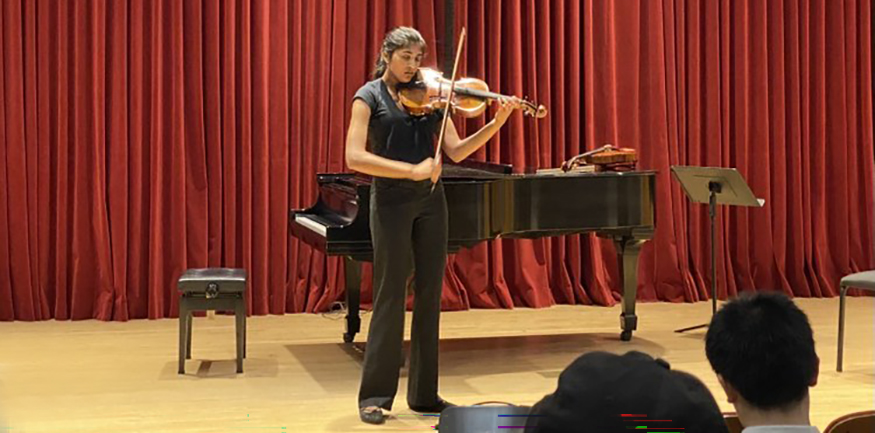
“In my freshman year, the orchestra was the best community I had,” she says. “In introductory classes at the UW, you can get lost very easily, but orchestra is a smaller group of people. And viola players tend to be very friendly and non-competitive. I felt very welcomed.”
With the exception of a pause during Covid, Shankar has continued with orchestra and private lessons throughout her time at the UW. Juggling courses, lab commitments, and orchestra rehearsals has been a challenge, but she believes the benefits have been worth it.
“I get a lot of joy out of music,” Shankar says. “It’s been important to continue doing music, just to get that break from STEM classes and physics. Sometimes if I’m stressed out and go to orchestra, it can be tiring because rehearsal is two-and-a-half hours, but I end up feeling a lot more balanced on the inside.”
That balance is something Shankar would advise every student to find.
“There are so many things happening at the UW,” she says. “It can sometimes be easy to get bogged down in coursework, but putting yourself out there and trying new things is important. You might discover something unexpected that you end up being really interested in.”
Meghna Shankar is in good company as a STEM major in the UW Symphony. In this video, learn more about UW Symphony musicians studying STEM fields.
More Stories
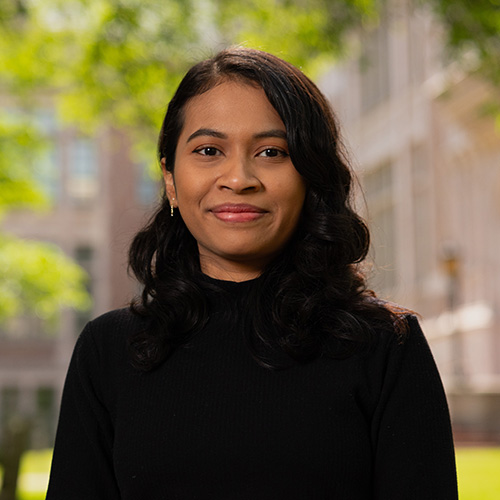
Balancing Sci-Fi and Scholarship
Speculative fiction author Anselma Prihandita (PhD, language and rhetoric, 2025), a Nebula Award winner, finds that her creative writing bolsters her scholarly work in unexpected ways.
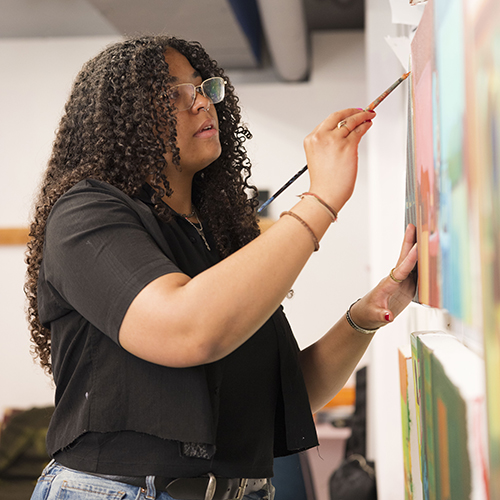
Making Art, Making Connections
While at the UW, artist Kyra Wolfenbarger was a researcher, museum intern, and arts writer. What shaped her most were the people she met along the way.
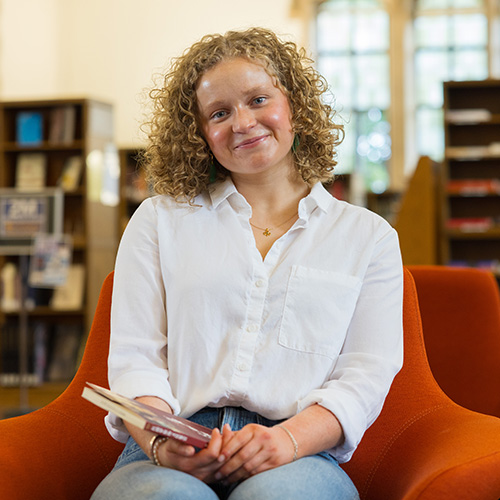
Exploring the World — and Global Careers
Study abroad in Vietnam and Madrid. An internship with the State Department. International studies major Grace Kelly explored the world as a UW student.
